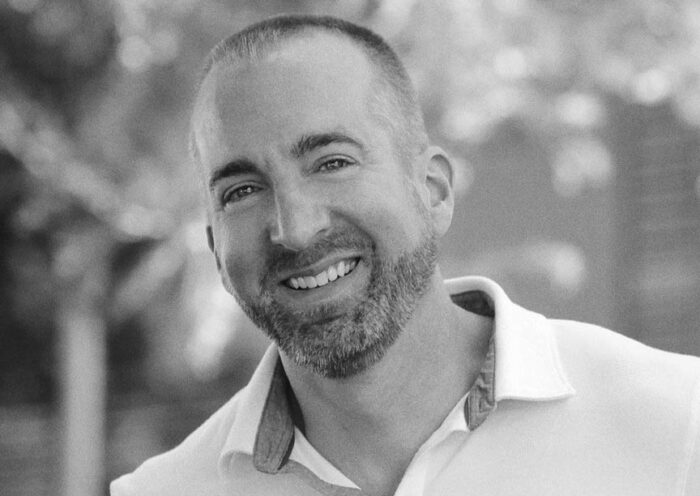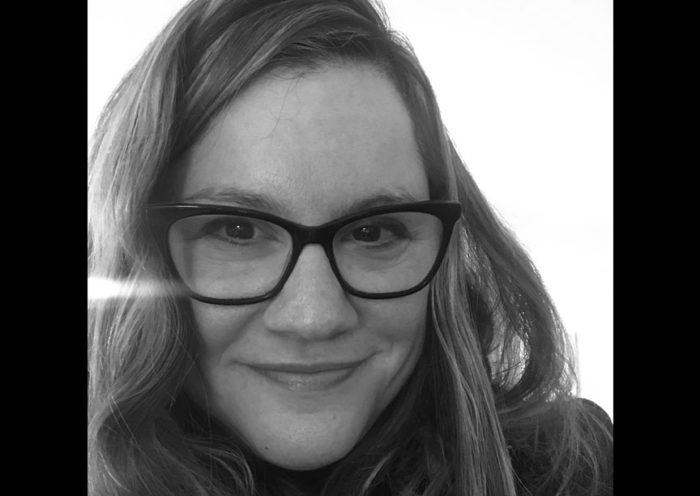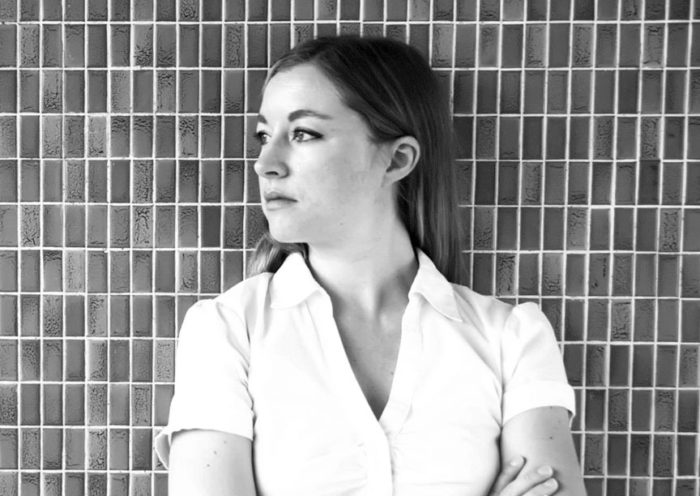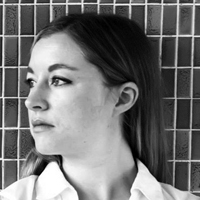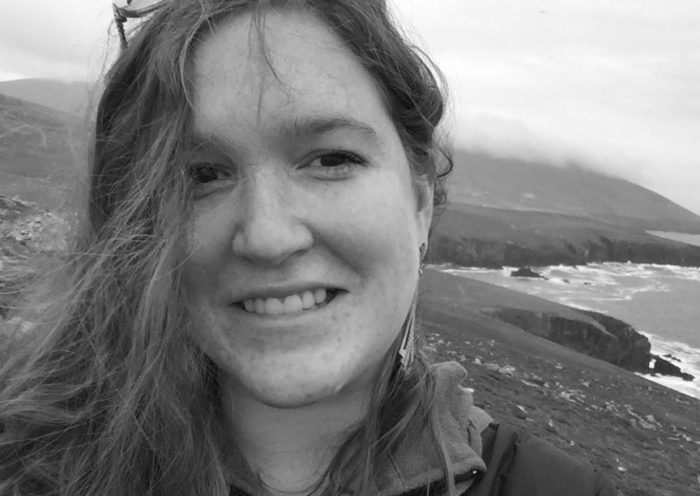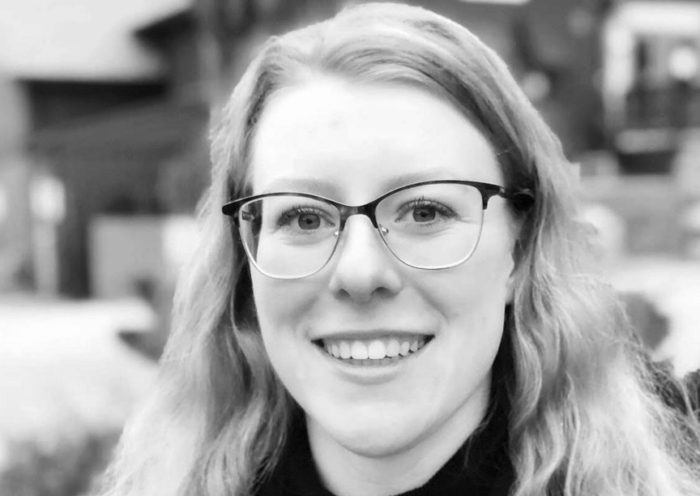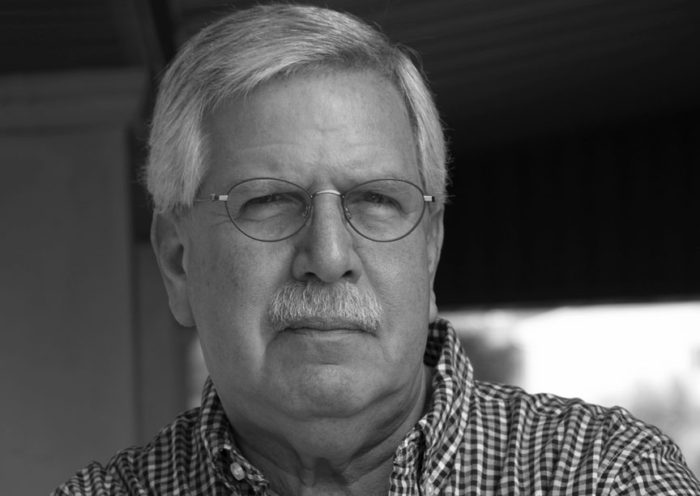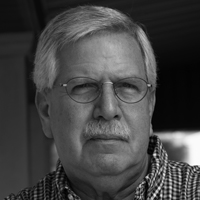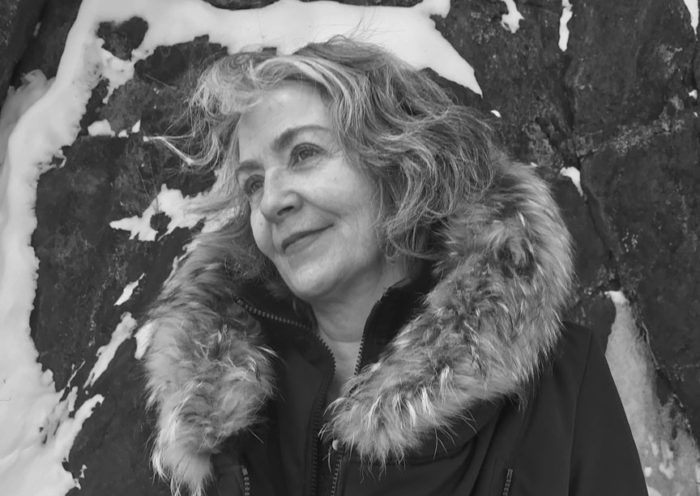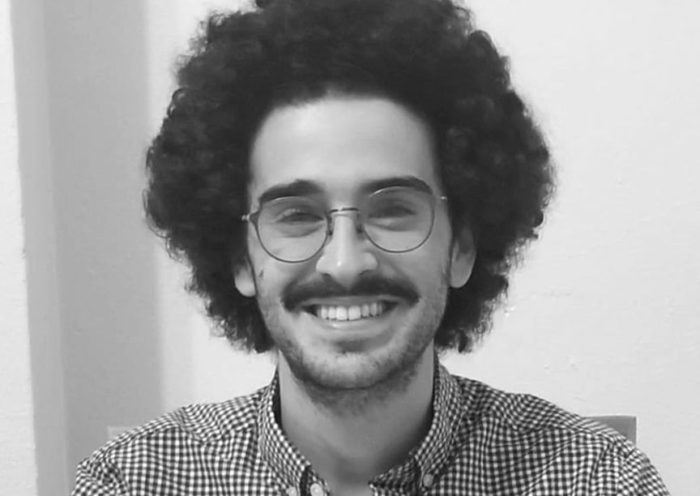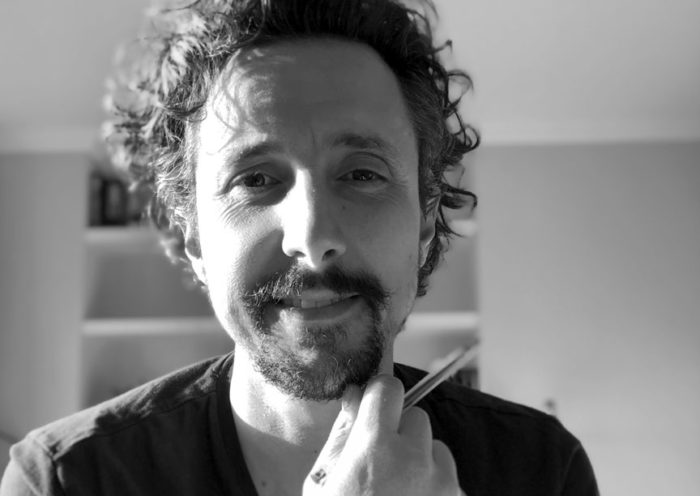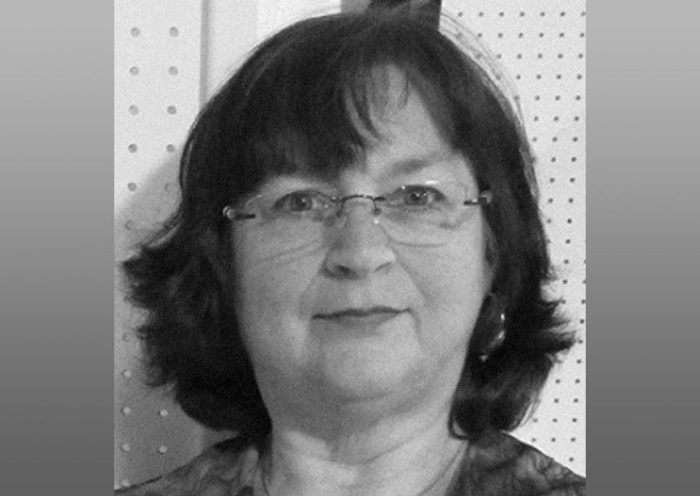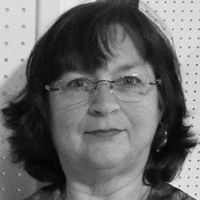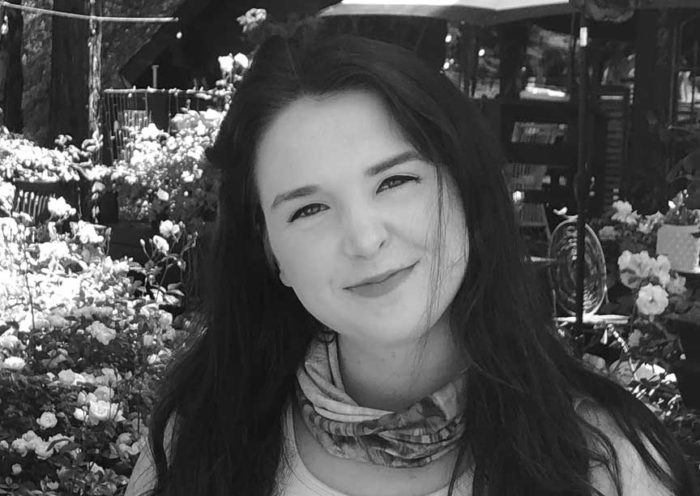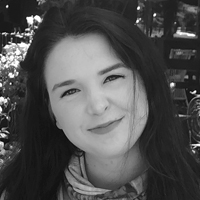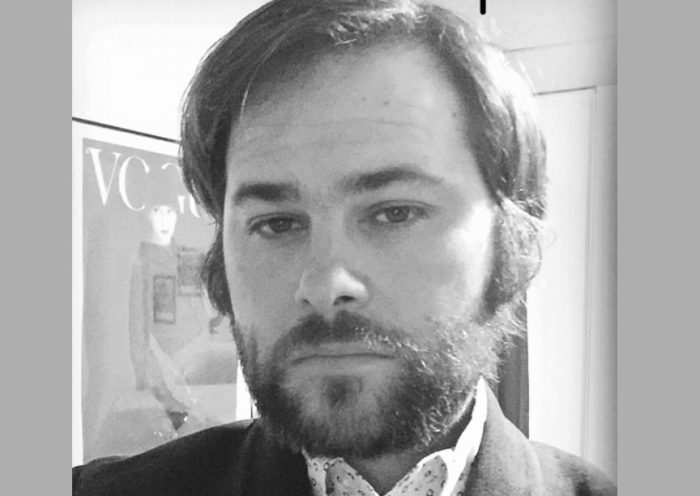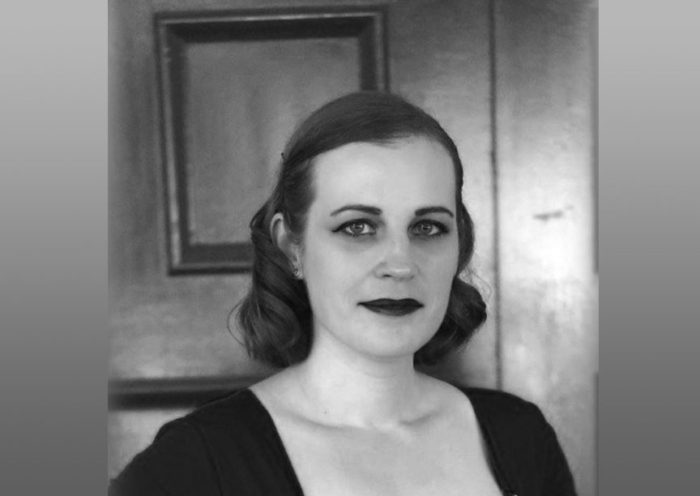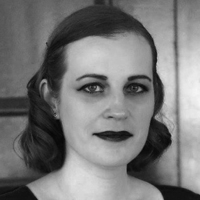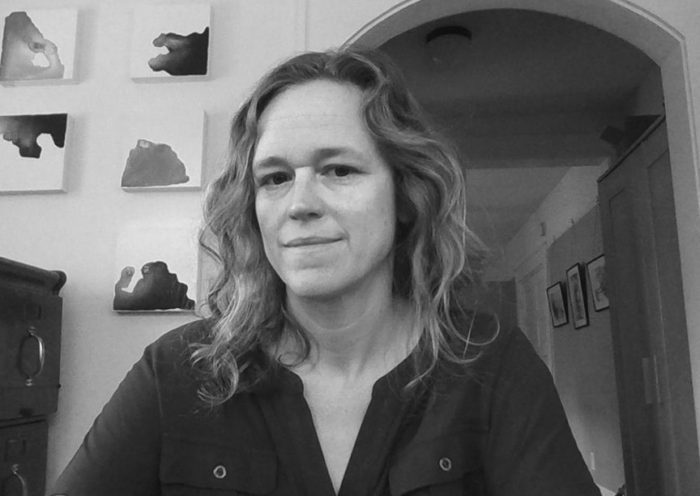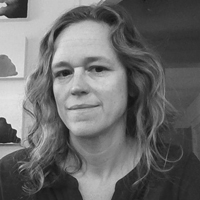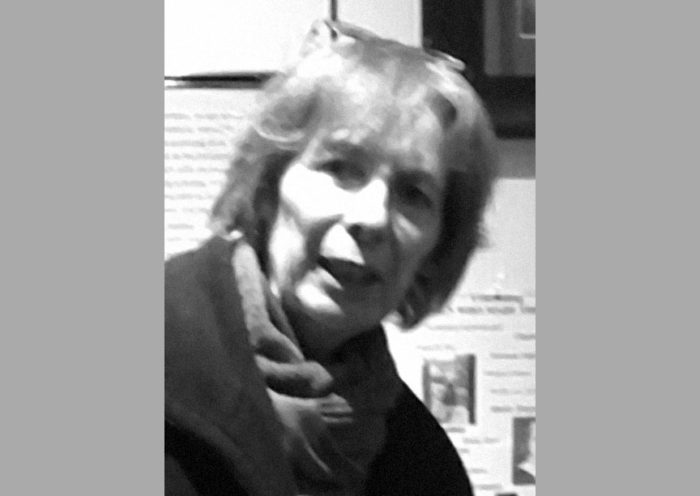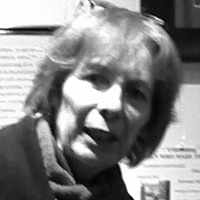The Marginalia Game
by Adam Anders
The books lay in chaotic heaps across the floor, and the cracked glass of the grandfather clock threatened to join them. The house-sitting job was definitely not supposed to end this way. He wasn’t even supposed to be in the library.
The glass-paneled door was closed when he arrived
and so he hadn’t noticed the book at first. When he did see it – conspicuous in
its tragic position – the potential displeasure of the professor made him
shriek inside. He could not allow for that. Not after that infamous lecture.
Embarrassing himself in front of the Distinguished Chair in Literature with
that obtuse comment. And that after he had failed to submit the marked
undergraduate essays on time. Recovery from this was immediately necessary,
lest he become just another errant, freshly minted PhD. His verbal prostration
at the Professor’s office led to this.
“I tell you what you could do for me,” the
Distinguished Chair had said, leaning back in his office chair and narrowing
his eyes, “I’m off to an extended conference in Japan next week, and I usually
have my son house-sit. He informed me this morning that an obligation will
preclude him from being there the entire time. Would you take his place for 24
hours?”
Naturally, he agreed. If he impressed, perhaps his
blunder in the lecture would be forgotten. A glowing recommendation from this
professor was critical to a tenure-track position for himself, once out of grad
school, of course. Failing the professor would, at best, mean relegation to a
limited term contract and at worst, ignominy and a lack of any opportunity
coupled with a poor network of connections. The book on the floor in this
prestigious home library needed to be put back.
Standing at the library door, he had hesitated. The
assignment was straightforward: watch the house, leave it as found. And the
library was described as ‘strictly off limits.’
So, he eyed the book, lying there on the carpet
spine-up, almost crying out like a wounded soldier on unfamiliar ground,
reaching out to him. He stood. What would the professor say?
Specks of dust floated in the sunlight, down towards
the floor. Light crossed the wingback chair, but the book lay just out of the
sun’s reach.
“Get up!” He whispered in desperation at the book.
“Don’t leave me here, man!” he imagined the
soldier-book calling back. “It hurts!”
“Dammit,” he breathed. He leaned forward, placing
his palm on the brass door handle. And it gave way.
His heart pinballed in his ribcage. ‘Off-limits’
rung in his head. Flashbacks of his parents’ venerable home office abounded
before him. He shut his eyes, shook his head and glanced around once again.
Because the library door was unlocked no one would know if he stepped in just
to put the book back where it belonged. His body lurched forward and stopped.
The grandfather clock in the corner of the library loomed. An hour remained
before the professor’s son was to arrive and take over from him. What if his
son knew about the book and was tasked with putting the book back? Perhaps the
book was meant to be there.
“Gotta get outta here man, we’re surrounded. Take me
back to my shelf-base,” the book moaned in his mind.
“What were you doing here?” he said, crouching next
to the book, trying to make himself as small as possible in the wilderness of
that library.
He glanced around. The stately library delineated
the discarded book as out of place. It was unnatural. In a professor’s home it
had to be… purposeful. It had to have reason, logic, motive…it had to be, a test.
Yes. Of course. Much like the professor’s fabled lectures. Always testing the
limits of his auditor’s intellectual capacities. He and his fellow graduate
students lived for those lectures; between them was stark existence, a kind of
intellectual stupor, unfed, famished, dying for a fix of the professor’s
wisdom. Female graduate students would glide about the entrance to the lecture
hall, gloomy and sullen, with dark circles under their eyes – the standard
insignia of the thirst for knowledge. Male graduates in their vicinity were
languid, likewise sporting blood-shot eyes, but notebooks open, pens at the
ready to note every detail of the appearance of the prof each day, his blazer,
the color-coordination of the pocket square and his shirt or tie, the unique
lapel pin or tie clip, the apparent naturalness of his perfect hairstyle and
whether it was in any way different from the previous day; all this in hopes of
coming closer to understanding the secret to such greatness.
“This is silly,” he shook his head. The
Distinguished Chair was just a title. He was still a man. A man who apparently
dropped books on the floor.
No, it was obvious. He was meant to see this, break
the rules, for the good of the sacred wisdom enshrined in that book, symbolic
of the elite nature of their vocation. This was his opportunity for apotheosis.
Test or not, books did not belong discarded haphazardly on the floor. There was
nothing wrong with what he was about to do.
The floor groaned underfoot. The smell of old books
and leather gave him goosebumps.
“You’ll alert the enemy!” The book scolded him.
He looked at it. Moral
Letters by Seneca.
Ancient philosophy? he thought. Excitement
tingled up his spine. Suddenly he was in ancient Rome, Seneca beside him in a
suitably attractive toga, though his own was of finer material.
He picked up the book, as if taking Seneca by the
arm.
The edges of the cover were worn; the spine had
creases in it. Worn, loved, understood, accepted. Yes, this professor
understood books in the same… he nearly stopped breathing.
Thin black lines raced under the text. Scribbled
notes filled the margins. Exclamation marks dotted the spaces between the
notes.
The private notes of a tenured professor. His
inhalation was almost an audible gasp. The inner musings of a great mind. They
were the intellectual secrets of a renowned teacher. All the things imagined,
whispered, heard on the grapevine, suddenly became very real. The idea that one
could learn from him, directly– that from this moment one would
experience the joys his wisdom, feast one’s eyes on his divine thought, then
speak to him and suffer delicious dialectic at his hands – at every encounter!
– was one that had been inconceivable, not considered even in his wildest
dreams. These marginalia were gold, manifest in scribbles.
He drew a deep breath to stem his nerves and shaking
hands.
No. It wasn’t right. It would be invasive of him. As
invasive as suggesting that personal traumas – including the professor’s –
biases all intellectual work.
He glanced at Seneca in his mind. In those deep
brown eyes lay the guidance. Forethought. He had lacked it at the lecture, he
would not lack it now.
He closed the book carefully, running his hand over
the cover as if to apologize for the intrusion. It needed to be where it
belonged, amongst the other books. But then, where exactly in the library would
he place it? Where had it been?
“What say you, old friend?” he asked Seneca, who had
been stoically waiting for him to begin the conversation.
The book opened easily, which was unsurprising,
stoics were, of course, inclined to engage the curious. He flipped through the
pages – an instinctive reaction to the splendor in his hand, but also a learned
reaction to solving a dilemma. Ink always contained life’s answers. The pages
came to a natural opening somewhere near the middle. There, on the left-hand
side, three lines had been underscored:
When philosophy is wielded with arrogance
and stubbornly, it is the cause for the ruin of many. Let philosophy scrape off
your own faults, rather than be a way to rail against the faults of others.
“Seneca, my fellow citizen, I couldn’t have said it
better,” he said.
Then another citizen engaged them.
Next to the underlined words, in the left margin, a
note read: scrape off layers; keep the peels; thus, γνῶθι σεαυτόν.
He put his hand to his chest. It could only be a
kindred spirit who would write intriguing marginalia on interesting passages.
He stared at it. What did it mean? And how in the
name of The Bard was this going to help him find its place on the shelf?
He read the words several times. The foreign letters…he
recognized them. Yes, his maddening roommate had a Spartan warrior on his desk
with letters that alphabet inscribed underneath.
“Spartan warriors…Seneca, I believe our apostilist
friend here is speaking to us in Greek. Naturally, you know Greek. I’m ashamed
to admit I’ve yet to master the intricacies—” he trailed off; the mystery had overcome
him; Seneca wasn’t listening anyway.
Did literary experts learn Greek? Perhaps it was a necessary
part of knowing the ancient classics?
He glanced around the library. No books on Greek.
Looking at the note in the margin again, he ran his
finger over the letters. The touch of the pen had been light, rushed even. This
citizen was hasty, one of those cynic philosophers perhaps, those that lived
naked in empty wine barrels and ate scraps of food with dogs. What purpose did
this hurried bit of insight serve? The Greek words might hold the answer.
Another page in the book could hold a clue. He flipped the pages carefully.
An exclamation mark caught his eye. Seneca spoke:
“Instead of adapting ourselves to present
circumstances, we send out thoughts too far ahead.”
He scoffed at the statement, “My dear fellow, that happens
to be where I disagree with the Stoics. How is one ever to achieve tenure in
the face of the miniscule odds? Adaptation to the circumstances was certainly
not—”
The third citizen interrupted with a sharp line shooting
from the last underlined word to a note in the space at the bottom of the page:
Ha! Joyce would agree!
Joyce? As in James Joyce? Did Joyce know Greek? He
looked up towards the surrounding shelves. There must have been a hundred books
on the two walls that were shelved.
“Would James Joyce agree?” he asked the empty
library. “In A Portrait of the Artist the theme of being in one’s head
rather than in the world, is there…”
“Where?” asked Seneca.
“Joyce,” he shook his head, “never mind, it’s the
point you were making that matters.”
“Our thoughts being too far ahead?”
“Precisely. The artist, his thoughts far ahead of
his time, sees the ills of convention, and rebels against them.”
Seneca raised an eyebrow.
He let out a frustrated breath through his nose,
raising his hands in a rushed apology. “I must be going, citizen. Salve.”
He closed Moral Letters and scanned the
library for The Portrait of the Artist. The book was special to him. In
it, the eponymous artist not only rebels against the conventions of his
childhood but then self-imposes exile. As a boy, he did the same. The world and
the bullies in it were distant and defenseless against stacks of books. His
father had always said that wars began and ended with words. He supposed this
was why his father said little to him beyond that. And it was why the local
public library was his daily exile – it was his arsenal, at once his armor and
his sword – a way to avoid the bullies and understand the fatherly insights not
immediately evident to his boyish brain. But he was still always home for
dinner. He wouldn’t have been entitled to eat otherwise.
“Yes, Joyce must agree.” It was an acute observation
about Joyce. But where would Joyce be amongst the broad scope of these volumes?
The library suddenly seemed to grow around him. A
cold sweat threatened to break out down his back. He approached the bookshelf
and found a loose space between two books. After re-shelving Moral Letters,
he lingered at the shelf, straightened his waistcoat, and turned to look for
Joyce.
Framed photos on the desk caught his eye. Their
silver linings reflected the sunlight. He took a step towards the desk to view
the content so hopefully mounted, but he then stopped. He imagined the things
he might see, and the thought of them was terrifying. For he knew what such
marble heroes turned into once they stepped down from their podia into the real
world. He knew because he saw them in the street, in crowded buses, in the
refectory or grocery stores, and walking across campus exposed to the elements.
They looked quite different then, and far more inauspicious: stocky, pasty,
with tiny timorous eyes, almost filthy, stinking of sweat or burned red by the
cold, dressed in shapeless tweed jackets and caps, coarse, aggressive,
fallible. The photos, the marginalia, they had to be left, altogether too
terrifying to behold in the light.
The floors creaked with his slow steps as he crossed
the library and then the house to the kitchen. He leaned on the counter. The
window at the counter overlooked the front lawn. He stared through it.
“Where am I? What am I doing here? How did I let
myself get into this?” He wailed silently. All the while, inevitably, the smell
of old books seemed to swell and catalyze his heart. He couldn’t decide what to
do. What would the professor do?
The light outside drew his attention. A young maple
grew in the middle of the lawn. Two small birds came to sit on the flexible
branches. A growing tree. That’s what Joyce’s
Portrait of the Artist was essentially
about; youth, growth. He watched the birds.
Love birds. There was love in Joyce, too.
“Youth, and growth,” he whispered. He took a deep
breath and then held it. A connection between Joyce and the marginalia manifest
itself in his mind’s eye. The young are dreamers. So, they tend to be ‘in
their heads,’ that’s where Joyce agrees. Consequently, they also tend not to
adapt to circumstances, just as Seneca suggested; as such, they rebel.
“Hm,” he grunted, “I wonder how many apostils are
con…nected,” he drew out the last word as a further realization struck him. What
if this opportunity to house-sit could be more than just watching the stately home?
What if this was a game?
“Don’t be crazy, the professor is a serious person,”
he scolded himself in a whisper.
Yes. But, the book on the floor…perhaps that was too
haphazard to be unintentional? Perhaps this was a game. Yes, in this professorial
library, where privacy and unregulated access was a privilege, here, in the
very heart of academia, modern sages could be forged!
He guffawed in a sudden burst. “Oh, come on.” He
scolded himself, but only half-heartedly.
A squint of light reflecting off the library door
caught the corner of his eye. Curiosity harkened, it reached out, pulling at
some invisible robe tied round his waist and breathing a flame of vitality into
his heart.
He grinned. I might as well, I already entered
the forbidden enclosure, let’s just see where these marginalia take me. He shrugged
off his cares and pranced towards the library.
The titles and authors raced past as he scanned the
shelves. No real order to anything, it seemed. Could he find Joyce if he
searched for him? A better question would be, could an answer to this Greek
riddle lie in that book?
“Joyce, Joyce, Joyce,” he whispered, craning his
neck to the top shelves. The edge of the bookcase was nearing; the chime of the
glass-faced grandfather clock standing next to it made him start. The
professor’s son would arrive soon to replace him. The game clock began with a
tick of the minute hand. Curiosity had a time limit. A good thing, too, because
they said that too much tended to kill cats. He wasn’t a cat, nor did he have
one, but he was nimble. Nimble enough to cross into the dominion of the
prohibited and solve its mysteries. The arrival of the professor’s son would
see him evicted from his search, relegated to the doldrums of campus life
without engaging the professor in this game of scholarly chess, in this mystery
of marginalia, leaving him cold, empty, just another apparition wandering the
campus in search of truth. No, he wouldn’t settle for that. Game on.
Retreating to the winged chair, he sat carefully and
stared at the shelves across the small square-shaped room. Would he really have
to comb over every spine to find it? He shifted in his seat. He would not fail.
He could not fail. He had failed with the professor before: he had failed to
submit work on time. He had failed to listen carefully in lecture. This time
he’d succeed.
He narrowed eyes at the titles. Many were familiar. That
raised his spirits. But there had to be a better way of searching for books
here, this was a renowned scholar’s library, there had to be some logic, some
reason, something to it.
“Alright brain,” he said, “how do you like to
organize knowledge?” The books were not organized by author, nor by title, so
no alphabetical order here.
Order. Organization. The words echoed in his head.
He surveyed the shelves again. Rows. Neat. The shelves were compartments of a
kind. Compartments. Compartmentalization…a psychological defense mechanism
linked to rationalization.
“Rationalization. Now that’s something a professor
would think of.”
Rationalization was a way of explaining
controversial feelings. Feelings would have to be organized by…
“Categories,” he whispered, and looked at the titles
more closely.
The groupings were broad, general categories amongst
particular shelves almost emerged, and then escaped his grasp like ethereal
wisps of letters. It was more than category. Broader. He retraced his logic.
Feelings. Feelings would be too restricted by category.
“Theme.” He smiled.
Love would be Joyce’s theme, for him at least.
And there they were. Left hand shelving, chest
height. Books that could be thematically organized by the term ‘love.’
A Portrait of the Artist as a Young Man, by
James Joyce, almost jumped from the shelf.
He exhaled sharply through his nose and shook his
head. The dust jacket was gone; he ran his fingers over the gold inlay on the
letters and opened the book carefully, his heart pounding.
The first pages were clean, no marginalia to be
found. But he would not be abandoned to a tragic fate.
“I know Joyce must agree, but what am I to find
here?”
Stephen Dedalus, the hero in Joyce’s novel, jumped
out and spoke to him, his words underlined on page 191:
“You made me confess the fears that I have. But I
will tell you also what I do not fear. I do not fear to be alone or to be
spurned for another or to leave whatever I have to leave.” He stopped. There
was more, but the apostilist appeared again, distracting him.
On the inside margin, a note read: fear now
overcome, love can grow.
What did it mean? There was insight in it, surely.
If he could only see it. Six words; a secret hidden within. Understanding it
would give him the key to this puzzle, bringing him one step closer to victory.
He read the note again. Fear…love…is this what was
meant by Joyce would agree?
“Seneca’s reference to not being present could be
equated with anxiety, or fear,” he thought aloud.
“Old Seneca may have said that,” Stephen Dedalus’ Irish
inflection seemed to interject. “But it was Aristotle, I think—”
Aristotle? He slumped. This was getting complex. He
sighed. What could it achieve? This mystery. Dedalus stared at him, mouth
agape, halfway through his words. Expectant. Ready. Ready to refuse the fetters
of fortune. Just like him. Yes. This was complex, but not too complex, no, not
for him. He straightened and further abided Dedalus’ words.
“…who said the same attribute cannot at the same
time and in the same connection belong to and not belong to the same subject.”
“Right,” he responded. “If you’re present, you can’t
fear, and if you don’t fear…” He looked to Daedalus for a clue. “Stephen, you
don’t fear being alone because you don’t need your lover. You’re alright on your
own.” He flipped through the pages, stopping at a square-bracketed sentence
that Dedalus spoke:
“The first step in the direction of truth is to
understand the frame and scope of the intellect itself, to comprehend the act
of intellection.”
“Of course,” he whispered. Academics were artists as
well, artists of scholarship and intellect. “We’re alright on our own,” he
said, filling out his chest.
An academic’s work was their passion, their love,
others were simply a distraction. This was what the professor must have wanted
him to understand.
He smiled. “Now, what were you saying Stephen?”
“I am not afraid to make a mistake, even a great
mistake, a lifelong mistake and perhaps as long as eternity too.”
Right. Mistakes are part of the game. Upwards and
onwards. He swallowed hard. That didn’t really make sense.
He stared at Stephen’s words for some time. The
piercing clang of the grandfather clock made him jump and Stephen Dedalus
disappeared. It was quarter past. A reminder of his time in the library quickly
ending. His eyes flicked back to the underlined quote from the protagonist.
Above the word eternity something in tiny blue ink resembled a word.
Screwing up his face, he brought the book as close to his nose as he could
without it going blurry.
“Hung?” he said aloud. “Eternity…hung…hung for
eternity? No…”
“Hoaq No. Not
that either,” he added furrowing his brow, looking up in frustration. How to read this? The light-stand next
to the chair. It had a drawer. This was the kind of library that would have a
magnifying glass, and the drawer is where it’d be.
Tugging gently on the brass handle, the drawer
barely gave way. Something slid inside. He gave another tug. The handle loosened.
“Shit,” he whispered.
Then he saw it. In the drawer, open just enough to see
inside, a piece of glass with a brass rim flickered. A magnifying glass.
“I knew it. Great minds, professor, think alike,” he
said in a sing-song voice with a shimmy.
He gave the handle another soft tug. It slipped out
just slightly, but the drawer moved with it. The space it left was just enough
to get a finger in. The drawer slid with effort, but the magnifying glass was
his.
“Hogg?” he read the word aloud. Eternity and Hogg… So
many damn authors with that name, but which was related to eternity?
He was up scanning the shelves before he completed
the thought. None of the thick volumes had Hogg on them.
“That would be too easy, wouldn’t it?” He put his
hands on his narrow hips. “Okay, think theme.”
Eternity could be about love, but he checked that
collection first. No glory. Eternity was associated with timelessness. Time?
“I could use more time, that’s for sure.”
He turned to the shelves near the grandfather clock.
None of the titles could have been clearly associated with time.
“I don’t know, the afterlife?” he thought aloud,
considering other possible associations.
He searched.
No books grouped by religious or spiritual themes.
“Think like a tenured professor,” he whispered.
He collapsed into the winged chair and crossed one leg
over the other. Think like a professor. He began to stroke his chin,
which soon turned into an imitation of smoking a pipe. He imagined himself
sitting across from the preeminent academic.
“How might we categorize eternity, old chap?” he
said in a poor version of a mid-Atlantic accent (but the paucity of the accent
was no matter).
He impersonated the professor’s reply: “This isn’t
about categorization, dear fellow, but about theme. Thematically, the afterlife
is—”
“About the human view of life, and its truth,” he
cut the professor off with quick perspicacity.
“Indeed,” the professor would reply.
“Indeed,” he’d agree, and he took a puff of his
non-existent pipe.
“Indeed!” he exclaimed in his own voice, jumping out
of the chair.
Truth. Books on the highest shelf. The theme
practically sang from their titles. There, in the middle, James Hogg’s The
Private Memoirs and Confessions of a Justified Sinner. He hesitated. Chills
wafted over his skin.
This was the book that firmly set him on the
academic path.
The philosophical mystery had chilled his teenage
bones when he had read it more than a decade ago. Its case of demonic
friendship had conclusively stopped his daydreams of befriending the idealized characters
in the novels he loved. Its criticism of unquestioned beliefs stoked his
skepticism. Its antagonist, Gil-Martin – or the devil – haunted the dark
corners of his boyhood room for several nights afterwards.
The hands on the clock moved, making a sound like
the ‘tsk’ of an impatient adversary.
“Time, time, time, running out of time,” he said,
speaking over a rising chill. The mystery of the marginalia was somewhere here.
Perhaps hidden in the evil in the book. A perfect juxtaposition for love. Yes,
genius. Evil genius. It suited the professor. It suited him. He was close now.
Close to understanding the Greek apostil. The taste of victory in a game of
academic acumen was within his reach! He paused. Academic acumen didn’t sound
like something that tasted good, if it had a taste at all. He chuckled and pulled
Hogg’s work off the shelf. The small book was heavy in his hands.
Opening the book to a random page, his stomach
dropped. Marginalia riddled its pages. It would be an impossible task to comb
through all of them for a clue to how eternity was connected to the apostils in
Joyce. He closed the book and beheld its cover. Justified Sinner.
“What does this have to do with love?”
“Nothing,” a voice whispered.
He whipped his head around. He was alone. Goosebumps
ran across his skin.
He leafed through the pages again. Too many damn
markings and notes.
“What moved you to such gratuitous analysis,
professor?”
“What moved you to such a gratuitous question?”
He started. “Who was that?” He scanned the room. No
one. He poked his head out of the library. An empty hall. “Hello?” Echo. He
drew a breath and forced a short sigh.
He looked back at the book.
“A note or two, a clue laid here and there, that’s
all I need.”
“You’ll never find what you’re looking for,” a voice
growled.
“Yes, I will,” he said without looking up, his
breathing quickening.
“Tsk, tsk, isn’t doubt the basis of all true
intelligence?”
The book shifted in his trembling hands.
“You’re not real, Gil-Martin,” he said.
“Ahhh,” the whisper was more like a deep breath.
“Then why reply? And why not open the book?”
He whipped opened the book from the back, almost
tearing its pages. He wouldn’t be intimidated by a character, an idea, words.
Words.
He stopped. Of course, opening the book from the
back. A standard practice amongst scholars – for it was there that
acknowledgments, or more importantly, the indices, bibliographies, and endnotes
were collected. But that was true only for scholarly works. Hogg’s book was,
instead, literary, and yet, in such literary texts, good editions had extra
blank pages at the back, for the inquisitive to take notes. The inquisitive, such
as academics like himself, and the professor, obviously.
At the top of one of the first blank page, a note
read: External labels are nothing. Position is nothing. It is the lie
(see page 293).
There was nothing else on that page, and so he
quickly flicked to page 293.
On the page in front of him, the devil came to life
in two double-underlined sentences, hovering behind him, those red lips, wet,
by his ear.
“We are all subjected to two distinct natures in the
same person. I myself have suffered grievously in that way,” his voice was
slow, like curling smoke.
“What do you have to do with the professor’s
secret?” He whispered. He furrowed his brow as his eyes leapt straight to the
marginalia next to the text, but he stopped. The devil’s voice was now in his
head.
“Do you really want to know the answer to that? What
if there’s nothing special in these marginalia? What if the secrets you seek
reveal who the professor really is? Weak, like the rest of us. Nothing, like
the rest of us. A simple dullard. Like you.”
“No!” His eyes shot to the marginalia desperately
wanting to prove Gil-Martin wrong.
He read quickly:
Two natures: the lie and the truth. The truth is
the individual divested of externalities/labels. The lie is ego. A line
stretched from there to a longer note in the space at the bottom of the page,
but before reading it, he reflected on the present apostil. It disturbed him.
He was almost unwilling to admit the connection he saw between the notion of
ego and his present understanding of the mystery.
“But-” it almost came out as a whimper- “how can you
say that having the title of professor is ego? And if we are divested of the
externalities of our profession, what possible truth remains? Without our titles
of position, our books, our notions, our knowledge, we’re…”
His heart was beating faster now. Thoughts raced in
his head. Somewhere in the darkened recesses of his soul, Gil-Martin chuckled.
Was his whole existence egoistic? Was he self-loving?
Or was he simply vain? If so, could he overcome his flaws? He squeezed the edge
of the book, gripped to his core.
He often sought praise. Naturally, he was diligent,
even meticulous, though he had been accused of perfectionism at times. He liked
hearing about how neat he was, how well-dressed; he went out of his way to
please others – this house-sitting endeavor being one example. Was he then,
afflicted by these vanities?
No, surely, he was not egoistic, simply ambitious,
hard working with an eye for detail and a shrewd understanding of how things
worked in his field. And what did this all have to do with what he had read in
previous marginalia? His breaths were short.
He read on, seeking solace in the note at the bottom
of the page.
As in Joyce, recognition of the ego is the
beginning of overcoming it. As a form of self-acceptance, recognition is the
beginning of self-growth.
He stopped before the end of the note.
“As in Joyce? What?” He sprung to the shelves and
pulled out A Portrait of the Artist and re-read the note.
“Sweet beard of The Bard,” he whispered, seeing his
mistake in interpretation of the previous note. “It’s not that the artist is fine
on his own.” It was just the opposite. His hand began to shake. The meaning of the notes became uncomfortably
clear. Joyce’s eponymous artist was not afraid to face the worst because those
fears have been laid out and he accepted them.
“Recognition of the ego,” he murmured, repeating the
words of the note. “Self-acceptance.” Self-acceptance, without labels and
externalities. The text and accompanying marginalia from Seneca made sense now
in this paradigm as well. Seneca mentioned scraping off faults – the note
emphasized this peeling or removal of self. The second Seneca line referred to
sending thoughts ahead…
“Just like I’m doing with this house-sitting.” He
barely got the words out.
The apostil for the second Seneca line referred to
Joyce’s agreement. He now saw it. Joyce’s agreement meant we often focus on who
we might be, instead of who we are.
Who we are… And who might that be?
The voice in his head then replied to his question. What
do you mean who? Someone extraordinary. Natural, real.
After a moment, he snorted. There is no such
person. Everything is pretense and masquerade.
Everything?
The house was silent, but for the ticking of the
grandfather clock. Consciousness seemed to slip away from him with every tick
of the pendulum. He wasn’t sure whether he was awake or asleep, for the
realization that his striving to correct his mistakes with the professor, to
improve the professor’s impression of him, that this behavior was the precise
object of criticism of the prof’s most private insights and intellectual
reflections, it all made reality seem so otherworldly and unbelievable that he
felt he might have dreamt the library and everything in it.
He slumped into the chair and throwing his head back
shaking himself awake, he could no longer doubt that this had all been real.
This insight, this privileged passage into the mind of a genius had hardly made
him wildly cheerful as one might expect. Quite the opposite. For perhaps the
first time in his life, surrounded by brilliant discernment both academic and
literary, he felt dreadful, and altogether aghast.
A melancholic apathy arose in him. This is what is
must have been like for the tragic figures of literature. This was his moment
of slings and arrows. No, his moment in the graveyard, overshadowed by the
greats that came before him, he, destined to be but dust over the dead. Yes.
Destined for dust. But instead of Yorick’s skull in his hand, he had this book.
This damnable, cursed book.
He gave the marginalia a cursory glance. The final
bit of the note at the bottom of page 293 in Hogg read: Self-acceptance is
‘a place of greater safety’ (thanks, Ms. Mantel).
A place of greater safety. That’s what he needed, not
least to figure out how aspects of his character might have been detrimental to
his understanding of the marginalia, and whether everything he thought himself
to be and was proud of, was in fact being condemned by the professor in this
intellectual game resembling a hall of mirrors of the mind.
In any case, he knew the next book in the apostilic
sequence. A Place of Greater Safety, Hilary Mantel’s meticulously researched
fictional opus on The French Revolution, had just won The Sunday Express
Book of the Year. Putting Hogg back on the shelf, he noticed Mantel’s novel
nearby. Of course, it held the same theme in this library as Confessions of
a Justified Sinner.
“Yes, what was The French Revolution about if not
conflicting personal truths? How appropriate, professor.”
He debated about whether to bother with it. The
mystery of the marginalia had only served to ridicule him. This game turned out
to be more like a rebuke, an admonishment of his attempts to be seen as a great
PhD student, helpful, unfailing, reliable.
“So, curiosity does kill the cat,” he said.
His shoulders slumped. The clock indicated that the
professor’s son would be there to replace him within thirty minutes. Thirty more
minutes, every one full of the promise of agony.
He shuffled towards the door.
Mistake…the word rang in his head as he
approached the threshold of the glass-paneled doors. A mistake – his life, his
goals, an eternity of mistakes. He stopped.
“Mistake, eternity…a lifelong mistake!” He perked
up. The underscored section in Joyce came back to him. Mistakes were part of
the game.
He had made a mistake, his goals were perhaps
mistaken, but perhaps that was part of the realization the professor wanted for
him. Of course! Spinning back towards the library, he had to know more.
He grabbed Mantel’s A Place of Greater Safety
from the shelf.
The novel was thick, over 800 glorious pages, and he
had read it. The book was rife with marginalia. Looking to the clock again, he
had no choice but to peruse these notes at random. Somehow, they had to bring
clarity to the former questions. By the beard of The Bard, they had to.
He opened the first pages of the book. Underlined
text with a marginal note was there on the left page:
He
feared, in his secret heart, that one day in company the baby would sit up and
speak; that it would engage his eyes, appraise him, and say, ‘You prick.”
He chuckled, once at the text, and then again at the
note. The marginalia read: Don’t we all fear this? A sudden realization
gave him pause. The observation was penetrating. He, too, had that fear. If he
thought of ‘the baby’ in the passage as the undergraduates he taught or the
people close to him that were unfamiliar with his field, well, then yes, they
might well call him a prick. People could hate him for his confidence,
perceived as arrogance, for his academic success, perceived as ruthlessness;
and their perceptions had some truth in them. He clenched his jaw and flipped
the pages.
There. A longer note beside this text:
For the
establishment of liberty and the safety of the nation, one day of anarchy will
do more than ten years of National Assemblies.
“What does government have to do with this mystery?”
he wondered as his eyes moved to the note, ‘ain’t that the truth? same goes
for the self…wonder if Mill would agree.’ The same goes for the self?
One day of anarchy…he looked at the door he left
open to the library, then to the loose brass handle on the desk drawer, and the
grandfather clock ticking away his house-sitting time. The books on the shelves
arranged and placed almost haphazardly, particularly the ones he had used. Was
he to understand, then, that liberty and safety were on their way for him? He
looked at the note again. Mill, Mill…. who the hell was Mill? Scanning the bookshelves,
he let out a frustrated sigh. The authors’ names on the spines were small.
Couldn’t there be another hint? Which Mill and what theme would this fall
under?
He ran his finger across the volumes.
Where is it? Mill. What a ridiculous name. Are you
an author or a machine?
Craning his neck, he stubbed his toe on the bottom
of bookshelf
“Damn it!”
He leaned over and reached out to the books for
support. Some gave way on to the floor. Losing his footing, he slipped,
slamming into the bookshelf. Another book fell on his head. He grunted in pain.
A Place of Greater Safety had fallen from his
hands and he’d lost his place. He screamed as he burst to his feet.
Placing an open palm on the spine of three books at
once, he pulled. They fell with a shuddered thud onto the hardwood. His eyes
went wide at the disorder. The utter disarray. The beautiful disarray.
“There’s your anarchy!” He shouted at the walls in
frustration, responding to the line he had last read. He pulled at more spines.
Unruly thuds echoed throughout the house.
After a few shelves sat empty, he paused, panting,
to admire the chaos he’d wrought. Books lay scattered in all directions and
positions. Open with the spines up, their covers bare to the world of the
library; other books were open with the spines down revealing pages of print marginalia.
Some books had slid across the floor, still closed, others lay stacked on one
another. One had its dust cover ripped. He picked it up. The book was something
on neuroscience. The Developing Mind by Daniel J. Siegel.
“Quite,” he remarked. He shook his head and brushing
it and placing back at a random spot on the shelf, he paused. He’d have to
clean this up.
He slumped back down, leaning against the shelf. Another
book or two went down with the coarseness with which he took his seat on the
floor, legs extended.
“Fuck it. Fuck it all to hell.”
He closed his eyes, listening to the grandfather
clock announce the ever-nearing steps of the professor’s son.
He reflected on the marginalia; on the test of
character he’d been through. What was there in all this that could have interested
the professor? Was it meant to prove the prof’s revulsion at his academic
ability, his potential, or perhaps simply his personality?
Sunlight caught his face, and he squinted. He hadn’t
finished the game. Why should he? The prof had made a point, and he understood.
He was unworthy. The offer to house-sit was prompted by disproval, by condemnation,
by profound irritation and disgust. The professor was after all the Distinguished
Chair and a legend, and as such was unlikely to feel much pity, let alone
approval, for an introverted grad student.
But then, did he really know this for certain? He
hadn’t finished the game, after all.
The book he needed to continue this game, or test,
or wicked jest, was the one by Mill. It was somewhere here, and it had a theme
like all the others. Maybe I could deduce the theme from the previous note? he
thought. ‘The self’ was the standout phrase. The text mentioned liberty,
safety.
“Almost like the Declaration of Independence. All we
need is the pursuit—” he stopped and stood. That was what the apostil
referencing the anarchy of the self, was about. “Happiness.”
And there, on a right-hand shelf near the
grandfather clock, books that might have had that theme. “Or the pursuit
thereof…,” he said as he laid eyes on John Stuart Mill’s On Liberty.
The combination of ‘liberty’ and ‘Mill’ from the
previous apostil could only be this. Excitement rose in his gut. John Stuart
Mill was a political philosopher he could get behind. Mill’s idea of the
‘tyranny of the majority’ and the related danger of conformity had always laid
the basis for his individualism. The professor did not disappoint. “Excellent
taste,” he murmured approvingly. Evidently it was a good thing he hadn’t given
up on his investigation.
He flicked through the pages. The marginalia were
almost nonextant. A few circled page numbers, no underlines, no notes.
“Dammit!” he grunted and tossed the book onto the pile. It landed open. He
raised an eyebrow and picked it up.
A strong crease in the spine at this spot caused it
to open where it did. Had he perused the book more carefully, rather than
fluttering through the pages with his thumb, he saw that the volume would have
easily opened here.
A passage had a square bracket around it on the
inside – he would have missed it just flipping through. John Stuart Mill
emerged with a pronounced dignity and a remarkably shiny bald head and spoke to
him.
“Ask yourself whether you are happy, and you cease
to be so.”
“Thanks, John, real helpful. Yep.” He imagined
giving the philosopher a sardonic clap on the shoulder. Mill continued,
undaunted, unperturbed, upper lip as stiff as a Victorian Brit could make one.
“The only chance is to treat, not happiness, but
some end external to it, as the purpose of life.”
His eyes locked on Mill. A frustrated sigh escaped
his nose.
“It’s the journey, as they say…” he said to the
philosopher looking around the chaos he had wrought in the library. It was a grim
scene. The tomes of wisdom with their insightful marginalia strewn across the
Persian rug and hardwood floor as if he were one of Bradbury’s Firemen, amassing
fuel for the fires of Fahrenheit 451. He snorted. How absurd. That he
might burn books? Disillusioned though he was with this situation, he was no
Guy Montag, the book’s protagonist. No, this situation was far more ludicrous, laughable,
a mockery, a farce of what a graduate student performing the simple task of
house-sitting was meant to be. It was grotesque, no, no adjective could do
justice to this mess.
Where am I? What am I doing here? Why did I get
myself into this? He wailed soundlessly.
In response to this ghastly spectacle, Mill seemed
to motion towards the apostils on the page.
Above the square bracket, written lengthwise in the
crease of the page, a note read: ‘\ happiness, like love, is being;
it cannot be a goal. Rilke knows.’
He stared out into the sunlight beyond the window. It
was true, wasn’t it? Seeking happiness meant engaging in everything except the
feeling of happiness itself.
He sat there bewildered. He closed his eyes against
the sunlight and fell into a daydream.
He was at a tailor. Elevated on a podium in front of
three mirrors, he could see the suit being made to measure. His vision was
close, zoomed into the details. Chalk marked the end of his shoulders,
perfectly. The sleeve reached just to the base of his thumb – the right length
to reveal a shirt cuff. It was double-breasted, formal but versatile, stitching
brought it in around his waist for a snug silhouette. A smooth swipe of the
chalk marked with perfect proficiency the end of his pant leg – the middle of
the Achilles, to show off a stylish pair of uniquely colored socks.
Sunlight flashed in the tailor’s mirror. Bookshelves
loomed before him. They were his own, but shorter, squat. He approached the
shelves. His name glittered in gold on all the spines. It was his yet unwritten
bibliography. He reached out. The gold began to flake. The walls moved in; cracking
accented the sound of twisting of wood. He desperately began hoarding the books
into his arms. Then there was smoke. All the books, including the ones he was
holding, began to burn.
He screamed, startling himself out of the daydream.
Sweat rolled in rivulets from his once precisely
groomed hair, which was losing its shape from the heat coming off his scalp.
“You… bastard,” he said aloud. To the professor
primarily – for causing his world to come crashing down, but he just as well
could have said it to himself.
He glanced down at the note again. ‘Rilke knows,’
the last words read.
“Just what I need, poetry to tear the gap into a
widening void,” he said with a rising lump in his throat and closed the book. He
glanced around the library. The books lay scattered haphazardly, ironically
reflecting his own emotional state. He couldn’t leave them that way. Game or
not, a library was a place worthy of respect. He squatted and began collecting
the volumes.
When nearly all the books were back on the shelves,
he slid a thin volume in a narrow gap between two thick books. The title caught
his weary eye. Letters to a Young Poet, by Rainer Marie Rilke. He hesitated. So,
not poetry, but advice? He thought back to the last note. He glanced at the
clock: his replacement would arrive any moment. He shrugged. Why not? he
thought. Flipping through the thoroughly annotated pages. A long passage in the
first third of the book, underlined and annotated, stood out:
But that
is where young people so often and so grievously go wrong: that they (whose
nature it is to have no patience) scatter themselves at each other when love
comes over them, scatter themselves abroad, just as they are in all their
untidiness, disorder and confusion…: But what is to be done then?
“Good question,” he said. An arrow stretched from
the last word to a note in the right margin: So each one loses himself for
the other’s sake.
He shook his head. “I get it already,” he said as
his eyes flicked to the note at the bottom: ‘\ self-love is key; those that don’t see the need for it fall prey to
the societal mores – Robinson says this.’ He grunted.
“Nice try,” he said. What was the point of following
this apostil? What had he achieved by doing so thus far? Scholarly restitution?
A guarantee at tenure? Fucking…divine omnipotence? No, just the bitter taste of
truth, the torments of self-reflection, and a healthy dose of hopelessness. The
path to redemption and knowledge had been a road of doom.
“My time’s up anyway,” he said.
Or rather, perhaps, his time had never really begun.
The time he had had in life was spent ‘losing himself for the other’s sake’ as
the apostil put it. Libraries had occupied the entire space of his life since
he could read. They supposedly armored him with books and knowledge. The
mystery of the marginalia had taught him one thing: his armor was overwrought,
rusted, and at worst entirely unimposing to the type of person it was meant to
impress. And therein lay the issue. So said the marginalia. Had he born the
armor for himself, it may have had an impressive shine – a shine he could
himself be proud of, at the very least. He was beginning to suspect that this
was his parents saw too, from the beginning.
He put the book back on the shelf and replaced the
remaining few. He took a step back and scanned the room. The magnifying glass
still lay on the chair.
“Almost forgot you,” he said, walking over to it.
In his emotionally fatigued state, he pulled at the
desk drawer without care for its fragility. His hand whipped backwards as the
brass handle came flying off. Glass cracked on the clock as it smashed into the
face.
“No! No no no no no no no,” he muttered, rushing
over to inspect the damage. The shattered glass crept across the clockface in a
spider’s web of a pattern. He raised his finger to a crack. “Ah!” he hissed
after touching it. A ruby pearl formed on his fingertip. He put it in his mouth
and shuffled back to the chair, placing the book on the light-stand. He looked
back at the grandfather clock, then his finger. Another pearl was forming where
he had sucked off the blood. He’d have to do something about the clockface. And
his finger.
He rushed to the kitchen, tore a strip of paper
towel from the roll next to the sink and wrapped his finger tightly.
The lock on the front door clicked.
He looked at clock, and his body went slack.
“If that damn game wasn’t the end of me, this will
be.”
The front door creaked open.
He walked to the front door and nearly did a
double-take.
A young man with a green mohawk and worn leather
jacket nodded at him. “Hey,” he said, removing his jacket and throwing it on
the coat stand.
“Chester? Right?”
“Call me Chess,” the man replied, walking over. He
held up his hand nearly vertical for an informal handshake.
“You’re the professor’s son?”
“Yeah man, hey—what happened to your hand?”
“Oh,” he said and the blood-soaked paper towel
around his finger behind his back. He gave a nervous chuckle, “Um, you’d better
come in.”
They stood in the library staring at the crack glass
face of the grandfather clock. After explaining the incident, silence fell
between them. He glanced at Chess. Was he smirking?
“What is it?” he asked.
Chess’ reaction was almost like subtly shaking himself
from a faraway thought. “Oh, my dad won’t mind if you tell him you’ll replace
it.”
“Yes, as I said, that’s the plan.” He watched him. Chess
had the look of someone who knew more than he let on. “So, you’re sure he won’t
kill me? I mean, the library was off-limits.”
Chess laughed. “Yeah eh? Man, it’s fine.” He put a
tattooed hand on his shoulder. The letters L-O-V-E stood out below his
knuckles.
He stared at Chess, confused. “What’s so funny?”
Chess shook his head. “He doesn’t mind the
unexpected. Spontaneity is a fascinating part of human behavior. It can lead to
growth. A professor of literature can appreciate that.”
“So why was it off-limits?”
He chuckled. “Ask him yourself, he’ll be over in a
second.”
“What?”
“Yeah, just drove him back from the airport, he’s
just at the neighbors’ dropping something off he brought back from Japan.
His heart went into his throat, but before he could
speak, a familiar voice called from the entrance.
“Helloo!”
“Dad, you should probably stop tormenting your
favorite students with the book on the floor.”
The professor laughed. “Oh, yeah?”
Chess pointed out the grandfather clock and
explained.
He watched in horror as the father and son duo
smiled and chuckled in comfort. The professor turned to him.
“Well?”
“Sir?”
“Where’d the library take you?”
He swallowed hard.
“Here,” the professor motioned to the couch and
chairs in the living room, “have a seat, tell me, I’m curious,” he smiled
again.
“I’m sorry, I know it was off limits.”
Chess scoffed, then turned and looked him in the
eye. “It’s not really off-limits.”
“What?” he asked.
“Chester’s right. With Seneca’s Moral Letters,
lying on the floor like that, who could resist putting it back?” the professor
stated.
“So, it was a test?” he asked.
The professor laughed. “No, more of a game.”
Chester rolled his eyes. “He does this to every grad
student he likes.”
He drew a deep breath, somewhat calmed by the
atmosphere, but still tense from the perplexity.
“So, where did it take you?” the professor asked
again.
“Well, I don’t think I solved the mystery.”
“What mystery?” the prof said, smiling.
“The mystery of the margin—” he stopped himself
mid-word, realizing how silly it sounded. “The Greek apostil. I wasn’t able to determine
its meaning.”
“The Greek apostil?” the professor asked.
“Probably something from Plato,” Chess suggested.
The professor nodded in understanding.
He raised an eyebrow at the professor’s son.
“It’s just I annotate whatever I read when I’m
here.”
He suddenly felt as if he were in a shadowy wood,
speaking to a specter in the dark.
“You wrote the apostils?”
“The marginalia, yeah some of its mine, some of its
dad’s, but yeah.” Chess smirked sideways and then slapped him on the back
before turning and heading to towards the kitchen. “You want a beer?” he called
over his shoulder.
“No, I-” he stuttered. This was getting to be too
much for one day. The emotional devastation of his self-realizations – or lack
thereof really – were black hole enough, but this…this tattooed, green
mohawk-sporting, carefree, anomaly-of-a-man, was not only the professor’s son,
but the insightful, shrewd, learned and astute apostilist? This had to be an
alternate universe. He turned to the professor and gathered his courage. “I thought
there was a message, an idea you’d connected through the literature,
professor.” He tried to make it sound like his adventure had had noble
intentions, but the words came out weakly.
“Sure, it was my idea to leave the book on the floor
and tempt you. The rest, that is, what you connected, and how, that was you.
And that’s what I’m interested in.”
He jumped as Chess put a hand on his shoulder,
having returned from the kitchen without notice.
“Your mind,” Chess said.
“My…my mind?”
“Yeah, how you connect the dots,” Chess replied,
taking a swig from a bottle.
“How you connect ideas.” The prof clarified. “That’s
the treasure of the academic world, isn’t it?”
He turned away, reddening in embarrassment. He
looked at the professor’s son. Chess was scholarly, despite appearances, possibly
despite expectations. And yet it seemed natural that his notes condemned
academia. Chess wasn’t what others might have expected him to be, and yet he
was still able to connect with others easily, seemingly also with his father
through the marginalia.
“Well?” the professor pushed again. His title now
somehow seemed most fitting for the piece of furniture on which he sat.
Valor slowly returned to him. He had something to
bring to the table, despite the doubts of the day. The perilous hunt had, it
seemed, been fruitful.
“It was about self-love, the connection I made…but,”
he looked up at the both of them.
Perhaps the mystery was not quite unraveled. There
was one last thing remaining.
“You wouldn’t happen to know an author by the name
of Robinson, would you?” he asked Chess.
Chess wiped his bearded face with the back of his
hand as he sat down. “Robinson?”
“Yeah, a friend recommended something by them, but I
forgot the title. I was looking for it earlier.” He thought maybe that would be
enough to assuage any suspicions about the placement of the books – he hadn’t
been too meticulous in replacing them from the floor.
“Oh!” The professor exclaimed. “Well, I have a book
by Marilynne Robinson called When I was a Child I Read Books.”
“Yes, didn’t we all,” he murmured at the floor.
“Yep,” Chess took a swig from the bottle, “All the
time, man.”
“Would you like to see it? Is that part of the
connection you made?” the professor asked.
“‘Nothing of significance occurs in isolation.’
That’s Robinson,” Chess said.
The look on the professor’s face was serious now,
but welcoming. There was a wisdom to it, to the glint in his eyes, the subtle
curl of his lips.
He sighed. “Sorry, professor, it doesn’t really fit
my self-love hypothesis.”
“Well, actually,” the professor said in a gentle
tone, “in ancient Greece, kings and generals used to visit the oracle at the
temple of Apollo in Delphi for prophecies. They came to know their fate, before
battles, before political marriages and other strategies.” His voice was calm;
the words rolled out in a melody that had him captivated. “Above the doorway to
the temple, inscribed in the stone were the words ‘gnothi seauton’.”
“The Greek phrase,” he whispered, remembering the
first note.
Chess gave a small nod. “‘Know yourself,’ is what it
means.” He paused as it sunk in. “But you can’t know yourself in a void,” he
concluded.
“Even with self-love,” he murmured.
The professor smiled. “Especially with self-love.”
#
The books in the university library were empty.
Bereft of marginalia, they were all rookies. Easy pickings. His first would
have to be special. The feel of dusty spines beneath his fingertips was the
bugle call, the gauntlet thrown, the bid to combat.
A small, thin, almost unnoticeable book stopped him
deep between the stacks on the fifth floor. This was the keystone.
Light-blue lettering against its green cover read Self-Knowledge.
Yep. This was it.
He found a comfortable chair and skimmed the pages.
At the end of a middle chapter, the final sentences before the blank space
caught his eye.
…forgive
them for not always managing to be reliable correspondents of their inner
lives.
He looked up and scanned the corner of the library
furtively. No one was looking. Taking a pen from his pocket he scribbled in the
margin: forgive yourself, too! And with a smirk, he placed it on the
floor, spine up, open, and ready for written conversation.
Game On.
BIO
Adam Anders is
a Canadian writer and teacher, living in Warsaw, Poland. Once upon a time, he
worked as a scholar of the Roman Army, having earned a PhD in Ancient History.
Now, he teaches History, English Literature, and Creative Writing at a private
high school.
He is also
an ALM candidate in Creative Writing & Literature at Harvard University’s
Extension School. In his summers he sails the seas, and in winter, he skis.

